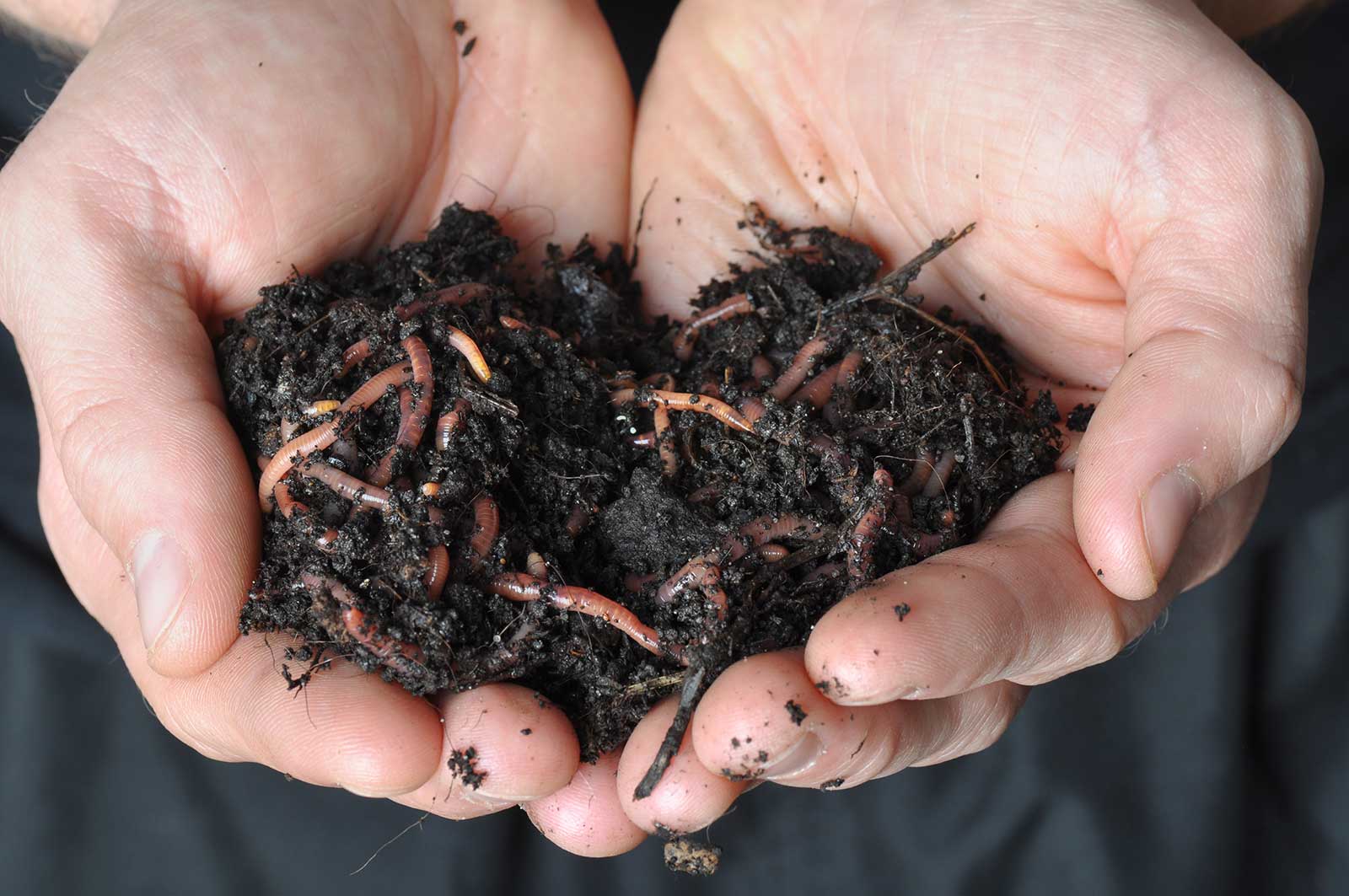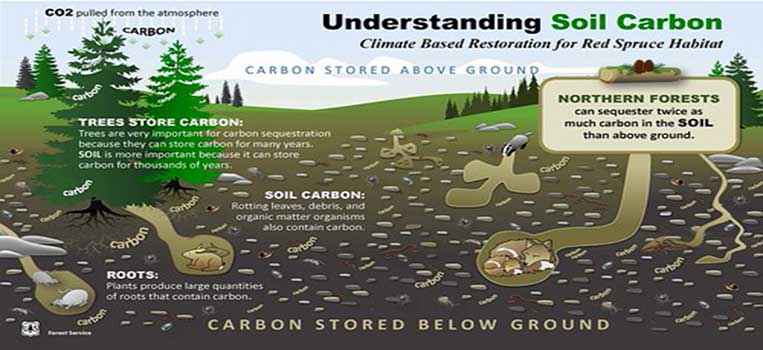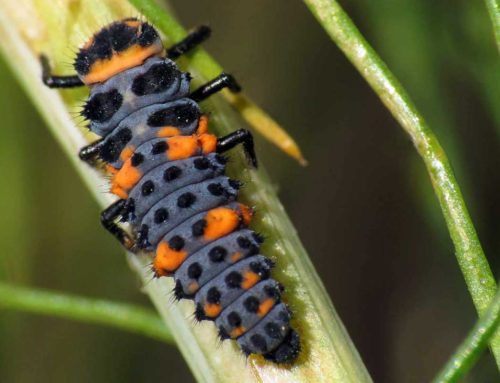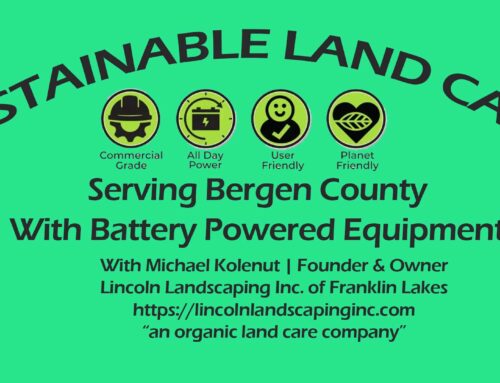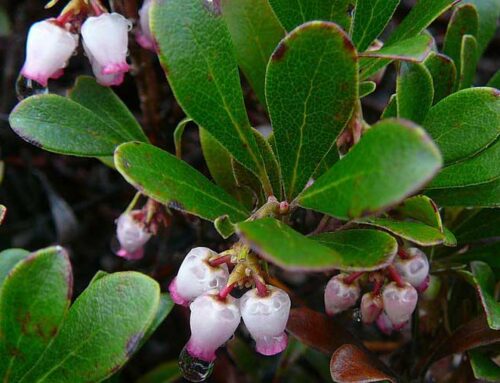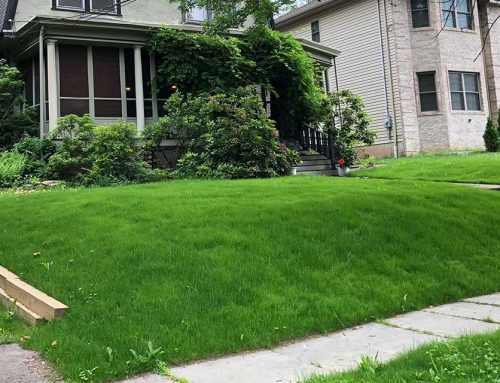“If you really think that the environment is less important than the economy, try holding your breath while you count your money.”
No matter who you are, you can take action to restore carbon to the soil and help rebuild the marvelous system that nature put in place to renew our atmosphere.
Here are the basic principles:
1 – Always keep soil covered with plants. They pump carbon underground.
2 – Don’t use synthetic chemicals (herbicides, pesticides, fertilizers on soil, they kill organisms.
3 – Don’t till soil, it shreds the things you want, like fungi, soil aggregates, worms
4 – Plant many cover crops, nature loves diversity and some will always grow no matter the weather
5 – Rotate annual crops with cover crops, perennials, fallowing, animal pasturing
6 – Plant perennials for their deep roots, constant soil cover, protection from erosion and ability to store lots of carbon.
Our Poor Earth – Day after day carbon dioxide gas is pumped into the air, warming up our planet and threatening our environment.
Good soil management helps promote the growth of healthy plants that absorb sunlight. Plants then use their own chlorophyll along with carbon dioxide and water to produce carbohydrates or simple sugars.
Fortunately for us there is a solution, and it is right under our feet.
Some of these sugars are exuded through the roots, feeding soil microbes that bring the plant water and nutrients. The plant thrives, locking more CO2 into soil organic matter that keeps our air from trapping heat and our planet remains healthy.
Actions Steps if you are a:
Farmer
1 – Keep soil covered with green plants
2 – Avoid use of synthetic chemicals (fertilizers, pesticides, fungicides) and use natural nutrients to build plant health and vigor
3 – Incorporate no-till or shallow till practices
4 -Plant nitrogen fixing cover crops in paths and between rows or be
5 – Incorporate native perennials, pasture cropping or forest gardens into your farm plan
6 – Graze or browse livestock, feed compost to poultry
Gardeners | Homeowners
1 – Keep soil covered with green plants
2 – Raise height of mower to cut grass taller
3 – Plant living mulch like clover in garden paths
4 – Compost, rather than burn, your yard waste
5 – Incorporate multi-layer, perennial, diverse plantings into your yard
6 – Plant your lawn with divers species, including deep rooted grasses and nitrogen fixing species like clover
Activist/Educators
1 – Support replanting your local environment, support diverse meadows and deep rooted grass landscapes
2 – Study soil microbe biodiversity and support composting everywhere
3 – Get to know diverse plants and bio-diverse ecosystems in your region.
4 – Invest your climate action donations and adovacy into reforestation and reversing desertificaation (rehydrating the land) locally and globally
5 – Advocate against factory animal operations and for properly managed grass and pasture-based farming
Policy Makers
1 – Emphasize development projects that restore, preserve, and do not destroy soil ecosystems
2 – Rule out synthetic nitrogen fertilizers on athletic fields, institutional and public lands
3 – Align local building codes with renewable energy use, biodiversity, and habitat restoration and protection
4 – Prioritize green infrastructure for coastal and inland flood management
Consumers, Investors, Funders or Business People
1 – Invest your food dollars in local farmers building soil, invest your climate action donations and adovacy in restoring soil carbon via reforestation and reversing desertification (rehydrating the land) locally and globally
2 – Compost your kitchen waste
3 – Stop buying from/supporting large scale soy, corn, canola and cotton products which use GMOs, synthetic nitrogen and persistent herbicides, contributing to massive soil loss every year
4 – Purchase food from farmers who utilize regenerative and organic practices
consume only grass-fed and pasture raised meats, poultry and animal products, looking for farmers and ranchers who prioritize soil building
Landscape Managers
1 – Minimize the use of pavement and unproductive mulch
2 – Incorporate nitrogen fixing trees and perennials into the landscape
3 – Maintain diverse forested buffers and perimeters (can be productive)
For More On SOIL CARBON RESTORATION visit https://nofamass.org/carbon/
About Professor Guy McPherson (whose quote is found at the beginning of the post)
Guy is professor emeritus of natural resources and the environment at the University of Arizona, where he taught and conducted research for twenty award-winning years. His scholarly work, which has for many years focused on conservation of biological diversity, has produced 14 books and more than 100 articles. He lives in an off-grid, straw-bale house where he puts into practice his lifelong interest in sustainable living via organic gardening, raising small animals for eggs and milk, and working with members of his rural community.
Guy developed a comprehensive set of durable living arrangements in response to the ongoing collapse of the industrial economy and global climate change. He shares property in a rural area developed specifically to provide abundant supplies of food and water as well as maintaining comfortable body temperature in the absence of fossil fuels.
At Lincoln Landscaping cultivating the environment is our life and livelihood. It is our number one goal to help our clients create and maintain beautiful landscapes while reducing the impact on the environment. Whether you are interested in a pollinator landscape garden design and build or other landscaping or property management project; we can create for you an environmentally friendly, organic and beautiful property.
Lincoln Landscaping “The Natural Choice”
Mike Kolenut President & CEO
https://lincolnlandscapinginc.com
(201) 848-9699




